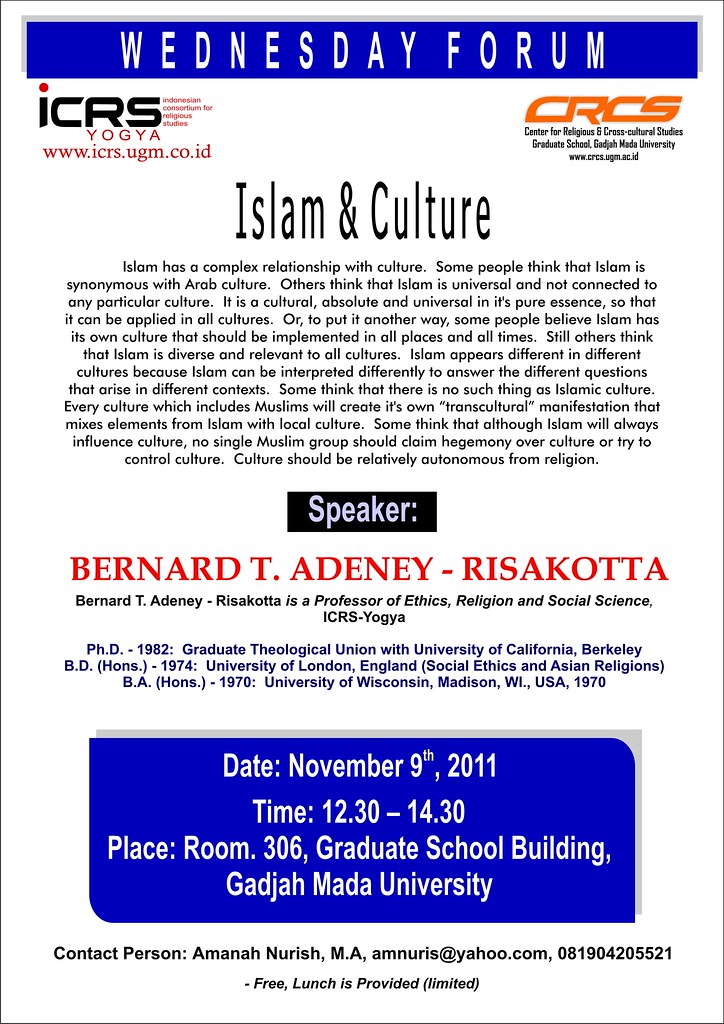Zainal Abidin Bagir and Irwan Abdullah | CRCS
While the development of contemporary religious studies as an academic discipline in Western universities can be traced back to the years following the Second World War the field can be said to have matured only in the 1970s. Since then there have been ups and downs, self-criticisms, and numerous developments which have brought it to its present state. What is usually understood as “religious studies as an academic discipline” is a discipline which utilizes a variety of methods from the social sciences and humanities. Religious studies is commonly distinguished from theological study by its sense of critical distance and its self-conscious attempt to be more “objective”, at least in the minimal sense of being aware of one’s own presuppositions which inform one’s study of religion. Indeed, questions of objectivity are elusive, and the very existence of this discipline, including what goes by the name “comparative religion”, has been questioned—not to mention the term “religion” itself. As evident in textbooks which introduce the students to this discipline, the whole enterprise of religious studies has been constantly reconsidered, and its practitioners, too, have always interrogated themselves and what they purport to do.




